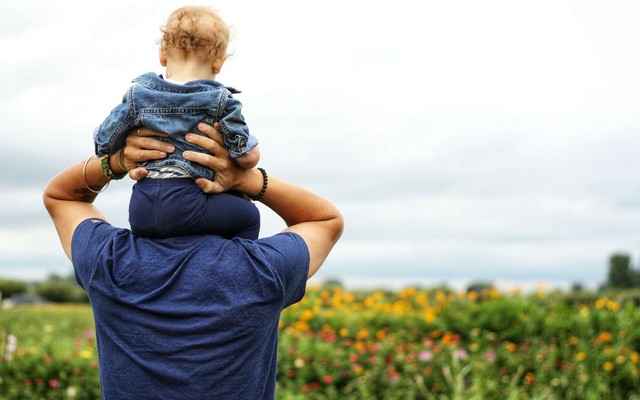“Life doesn’t come with an instruction book — that’s why we have fathers.” — H. Jackson Brown Jr
If mothers are the epitome of selfless care, warmth, and affection, fathers are the anchors — strong, steady, and enduring — navigating their children through the tumultuous waters of life. They may not always wear their emotions on their sleeves, but their presence is powerful, quiet, and unwavering. A father is not just a provider; he is the protector, the guide, the steady shoulder, and the silent support system. Over the years, fatherhood has transformed. Gone are the days when fathers were distant disciplinarians or sole breadwinners. With the evolving social fabric, new-generation fathers are redefining parenting, blending affection with authority, and presence with participation. From diaper duties to school drop-offs, from attending PTMs to bedtime stories — modern day dads are embracing every facet of parenthood. This Father’s Day, Varkaa brings voices of fathers from different walks of life, across generations, sharing how their approach to fatherhood has evolved and what being a father truly means to them.
“Parenting is teamwork.” – Naveen Garg, 45

Father of two, Naveen Garg believes parenting is a shared responsibility, not a solo act.

“I often see men who restrict their contribution to just finances — and regret it later. In today’s world, when women manage both careers and homes, it’s only fair we support equally. I pack lunchboxes every morning while my wife helps the kids get ready. She handles academics, and I take charge of extra-curriculars. We divide duties by strength, not gender. That’s how parenting should be.”
“I want to grow emotionally with my daughter.” – Udit Aggarwal, 31

A first-time father, Udit is basking in the tender joy of raising a newborn daughter.
“Watching her yawn or blink feels magical. I talk to her even if she doesn’t understand a word. My own father was a stoic figure — strong but silent. I want to be more expressive. I want her to know I’m here for her — physically, emotionally, always. I’m ready to kneel beside her,
not just stand behind her.”
“Changing diapers doesn’t make you less of a man.” – Pawanpreet
Singh Sethi, 35

For Pawanpreet, fatherhood means showing up — for every little moment. “Both my wife and I work full-time, so responsibilities are shared. Since her birth, I’ve done everything — from sleepless nights to morning strolls. It’s not a favour; it’s parenting. I don’t see this as extraordinary. It’s my duty and my biggest joy. This is what being a father looks like in today’s world.”
“Respect is fading, and so is fear of doing wrong.” – Rajesh Sharma, 47

Raising a teenage son has made Rajesh nostalgic about his own childhood.
“When I was young, there was an inherent respect and a little fear of our parents — not because they were strict, but because we knew our boundaries. Today, there’s materialism, and attachment seems
diluted. I try to be friendly with my son, but sometimes I miss the moral compass we had growing up.”
“I never had a father, but I became one I wish I had.” – Amrit Kumar Aggarwal, 66

Having lost his father before he could form memories, Amrit shaped his fatherhood from a place of longing.
“Raised by a strong mother, I knew what I missed — a father’s warmth, protection, guidance. I ensured I gave that to my children. I didn’t copy anyone. I carved my own path. Even with my daughter, who has Down Syndrome, I never saw her as lesser. Today, I see my
children thriving and feel fulfilled — I did my best.”
Whether it is the silent resolve of a father from the yesteryears or the soft, emotionally attuned parenting of the new age, the essence of fatherhood remains the same: unconditional love, presence, and protection. Fathers are no longer just providers — they are nurturers, playmates, teachers, and emotional anchors. Their methods may differ, but the goal is always the same: to raise happy, confident, and compassionate individuals.
This Father’s Day, let us acknowledge not just the fathers who raised us but the ones we see today — breaking stereotypes, sharing duties, and embracing vulnerability — proving that real strength lies in presence, not pretense.


